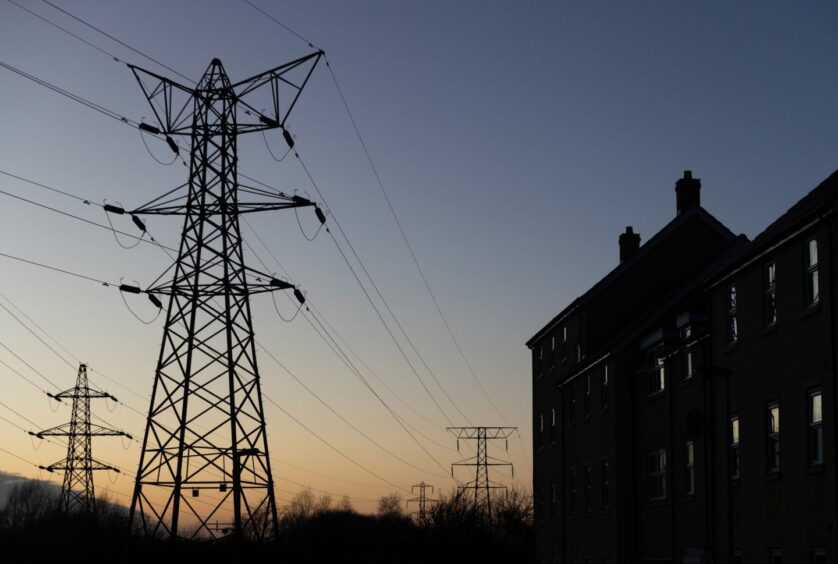
Heat pumps are at least three times more efficient than gas-fired boilers, according to the latest research from two separate UK government-backed reports.
Cornwall-based heat pump manufacturing group Kensa, which is part-owned by energy supplier Octopus Energy and Legal & General, estimates that these efficiencies now make heat pumps cheaper to run than gas boilers.
Kensa said that, using energy cap prices and efficiencies demonstrated by the latest research, a ground-source heat pump would be 13% cheaper to run than a gas boiler in an average UK home, when looking at 10 MWh of heat demand.
‘Same’ cost as a gas boiler to run
An air-source heat pump, according to the analysis, “would cost the same as a gas boiler to run”, and time-of-use tariffs often used by electric car owners could lead to further savings.
The Ofgem energy price cap for the fourth quarter of 2024 was 24.5p/kWh for electricity and 6.24p/kWh for gas.
The price cap is due to increase by 1.2% to £1,738 a year from January to 31 March 2025, compared to the prior quarter, which is expected to make energy bills more expensive.
“Combine the continually improving efficiencies of heat pumps with lower power prices, and we’ll see the significant real-world savings consumers can make by switching to low-carbon heating,” said Tamsin Lishman, the chief executive of Kensa.
“With this and ending the installation of gas boilers in new homes, the government can normalise heat pumps in UK homes and kick start the transition to clean affordable heat.”
Heat pumps are a potential alternative to gas boilers but they come at a cost, with the average heat pump costing more than £7,000 to install, according to The Eco Experts.
Kensa said that delays to the implementation of the Future Homes Standard result in approximately 15,000 new homes being fitted with gas boilers each month, which it said adds an estimated £145 million in future retrofit costs.
‘Three to four times more efficient’
A new report released by the Energy Systems Catapult this month, the Electrification of Heat report funded by the Department of Energy Security and Net Zero, assessed that air-source heat pumps are 281% energy-efficient, according to Kensa.
Gas boilers are about 82.5% energy-efficient by comparison, a previous in-situ study backed by the last government found, which showed that electric boilers and heaters are up to 100% efficient.
“This new research shows beyond doubt that heat pumps are the most efficient way of heating homes, three to four times more efficient than gas boilers,” said Lishman.
“As a manufacturer and installer of ground source heat pumps, it’s pleasing to see real-world data confirming the technology is the most efficient heating technology available, over 40% more efficient even than air source heat pumps.”
An earlier in-situ heat pump performance report by RB&M Research concluded in November that air source heat pumps were, on average, 265% energy-efficient and more efficient than gas boilers.
That report found that ground-source heat pumps were even more efficient than both air-source heat pumps and gas boilers, demonstrating 324% energy efficiency.
The study analysed data from energy regulator Ofgem over a five-year period from 2017 to 2022.
According to the latest Energy Systems Catapult report, residential heating generates 18% of UK carbon emissions, the majority of which come from natural gas boilers.
It looked at the feasibility of a mass rollout of heat pumps in the UK, specifically examining 742 heat pumps installed by delivery contractors Warmworks in Scotland, E.ON in the north-east of England, and Ovo Energy in the south-east.
Perform well ‘even when temperatures drop’
The report also showed the high performance of ground-source heat pumps even at subzero temperatures in the depths of winter, illustrating the role that such technology can play in managing grid capacity issues, according to Kensa.
It said the Electrification of Heat Report found that when the outdoor temperature was -5°C, air-source heat pump efficiency was 230%, while ground-source heat pumps were 310% efficient.
The resilience of heat pumps to external weather including below-freezing temperatures is important “when evaluating the impact of a large-scale heat pump roll out”, the report concluded.
“Importantly, the report shows ground source heat pumps perform well even when temperatures drop below zero, meaning reduced electricity demand and less pressure on the grid,” said Lishman.
“This is a critical finding for how we achieve the mass roll-out of heat pumps, with millions of homes poised to switch to electrified heating.”

